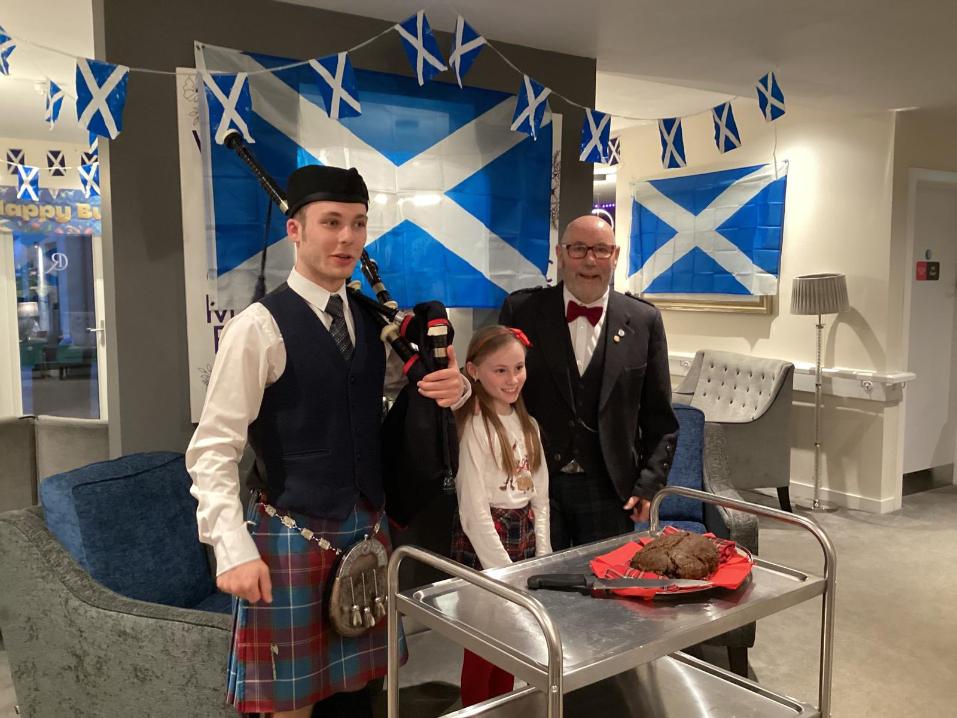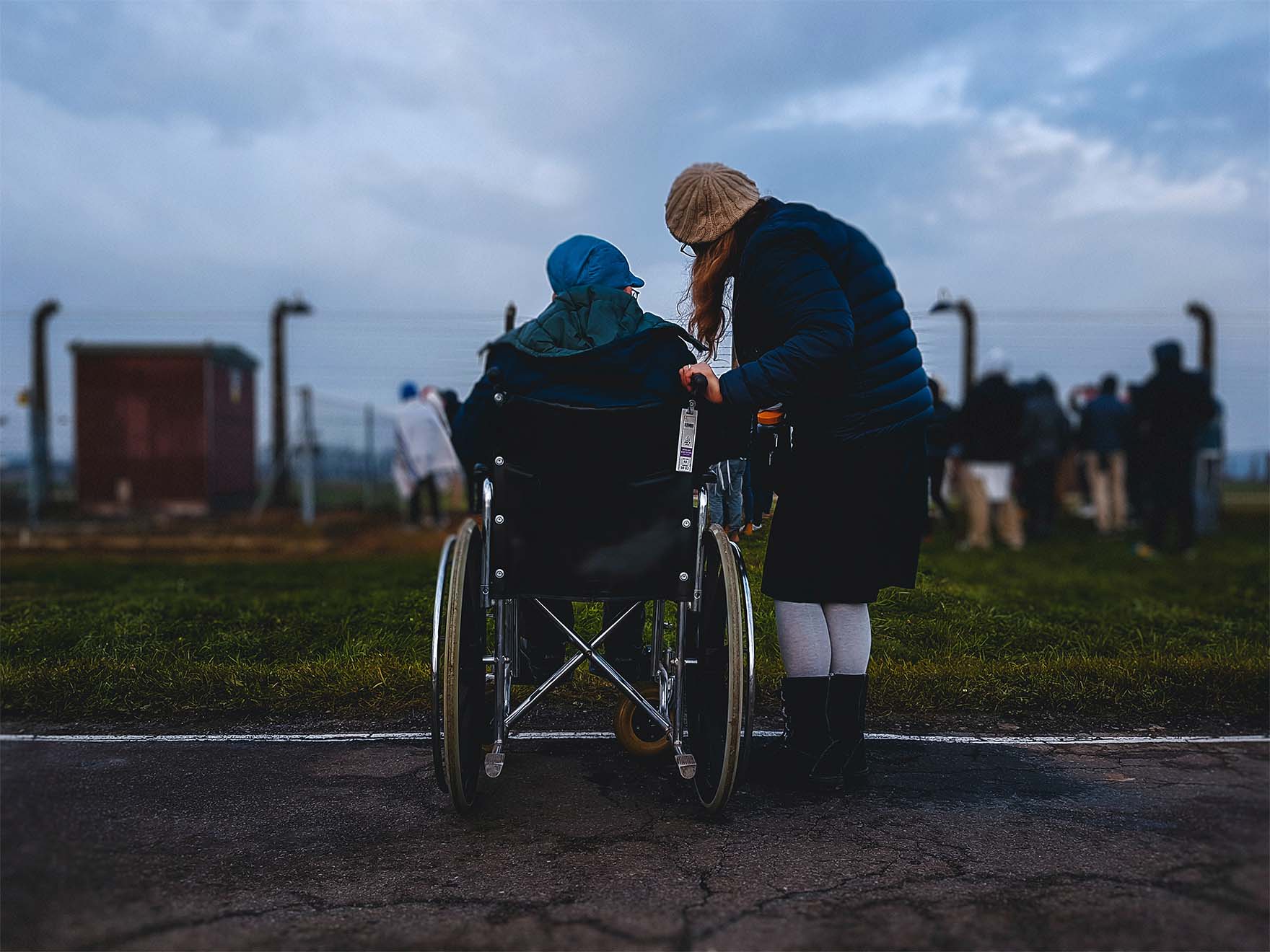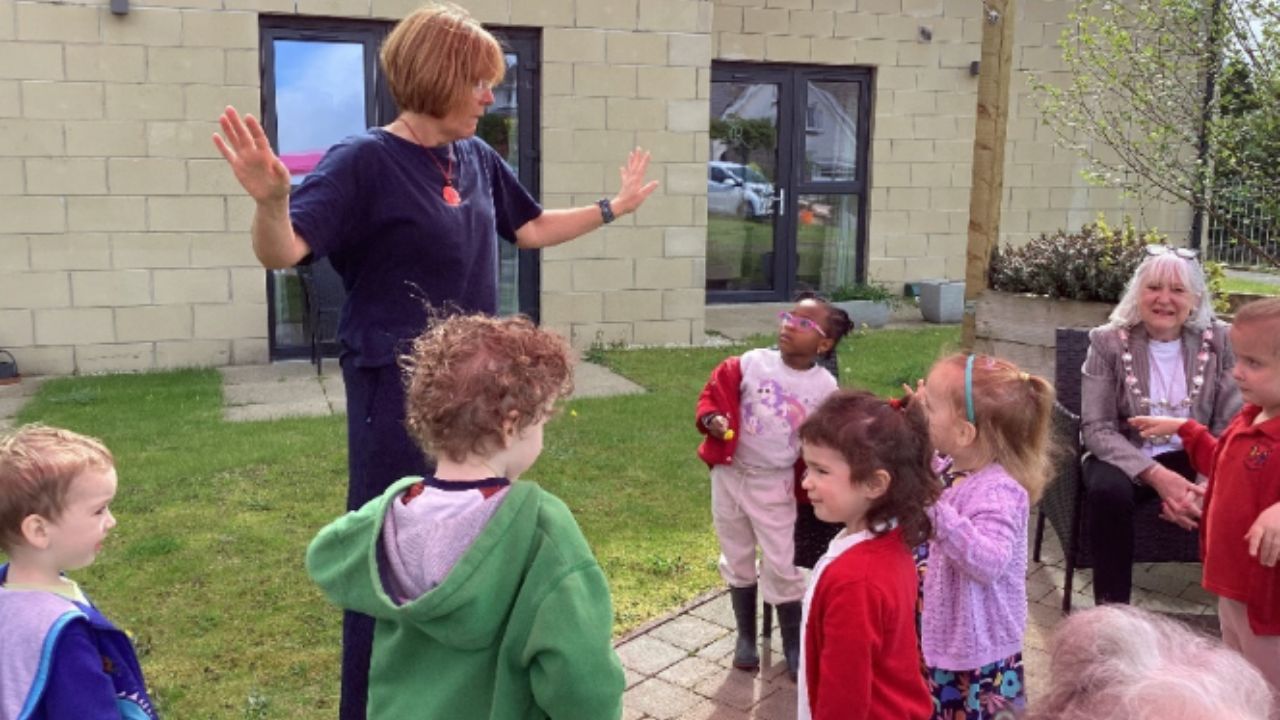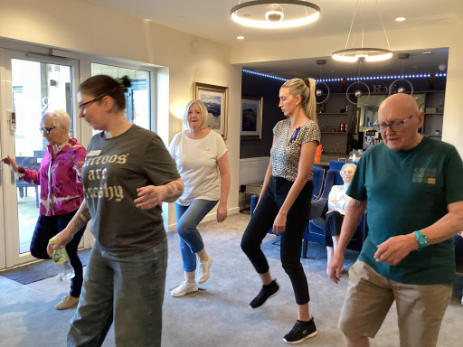Personalised Care Planning Means Putting People at the Heart of Their Care
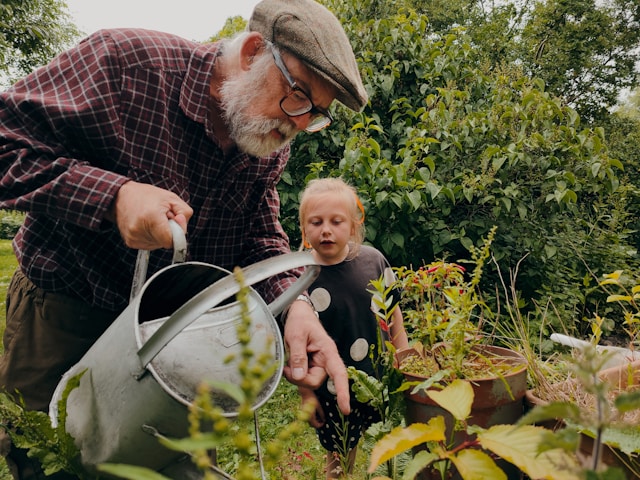
Personalised care means making sure each person feels understood and valued when they move into a care home. Tailored care is a holistic approach that considers all aspects of a person's life, including their wider health, social circumstances, and overall well-being, ensuring care planning addresses more than just clinical needs. Rather than taking a one-size-fits-all approach, personalised care begins with listening. By sitting down with residents and their families, carers are able to understand what really matters to them – from how they like their tea in the morning, to what helps them feel calm and comfortable. These conversations form the basis of a personalised care plan that supports not only a person’s physical health, but also their emotional well being, daily routines, and the broader context of their life and experiences.
It’s this attention to the individual that helps residents feel safe, settled and in control of their care. In an excellent care home staff, residents, and families work hand in hand to ensure care is genuinely personalised and responsive. Whether someone is joining us for long-term nursing support or more specialist care, personalised planning allows us to provide thoughtful, consistent care that evolves as their needs change.
Why Personalised Care Matters in a Residential Care Home
No two residents are the same, and their care shouldn’t be either. In a residential or nursing home setting, personalised care planning allows us to respond to each person’s individual needs, choices and lifestyle in a way that feels both respectful and familiar. It’s about seeing the whole person, not just their condition. Some residents may prefer a quiet morning routine and a late breakfast, while others enjoy early starts and lively conversation. For one person, their faith may be central to their wellbeing, and for another, having time outdoors or listening to music from their younger years may be what brings comfort and joy. These details might seem small, but when they’re acknowledged and included in a care plan, they help create a deeper sense of trust and enable care home residents to live a life they really love.
Personalised activities are a big part of this. We take time to learn about each resident’s interests, hobbies and background so that daily life includes things they genuinely enjoy. These activities are designed to support residents' daily living and address their holistic needs, ensuring that all aspects of their wellbeing are considered. Whether it’s gardening, painting, gentle exercise, baking, or simply having a companionable chat over a crossword puzzle, a good activity team plans meaningful activities that suit different personalities, energy levels and mobility needs. This not only supports emotional wellbeing but also helps residents feel connected, purposeful and more at ease.
Mealtimes are equally personal. for many residents, food is part of their identity, their memories and daily comfort. Part of a patient's care involves listening closely to preferences and routines: what someone enjoys eating, any dietary needs or allergies, how they like their food presented, or whether they prefer to eat with others or in the quiet of their own room. Understanding and meeting support needs around nutrition and dining routines is an important part of a personalised approach. Wherever possible, residents should be offered choice and flexibility, so that they continue to enjoy meals in a way that suits their preferred lifestyle.
In a well-run care home, personalised planning doesn’t just stop at health needs. It influences everything from how medication is managed, to how activities are planned and meals are served. Staff get to know residents properly – their personality, their likes and dislikes, what calms them, and what brings them pleasure. That knowledge allows us to tailor support in a way that promotes dignity, independence, and a real sense of home. Offering a range of support options ensures that each resident’s preferences and needs are met in the most effective way. By focusing on the individual, care homes can better support their physical health, emotional wellbeing and overall quality of life. It also leads to better outcomes, helping residents to feel more engaged, secure and understood.


Better Health and Wellbeing Through Personalised Support
When care is shaped around the person, rather than the diagnosis, it has a real and lasting impact on health and wellbeing. Personalised care planning helps residents feel more involved, more confident, and more in control of their day-to-day life. That sense of agency, even in small decisions, has a profound impact on mood, motivation, and overall quality of life. Residents are encouraged to take an active role in managing their own health and are valued as active participants in their care planning.
Rather than simply following a clinical routine, a care team works with each resident to understand what support feels right for them. For some, this might mean adjusting how and when personal care is given, so it fits with their natural rhythm. For others, it could involve setting small, realistic goals for mobility or nutrition, and offering encouragement every step of the way. The team helps patients identify their personal goals and provides appropriate support to achieve them, fostering self management. These are small everyday moments, but they make a big difference, especially when someone is managing a long-term condition or recovering after illness.
When residents feel listened to, they are more likely to engage with their care. They’re more likely to speak up when something’s wrong, to take part in activities, and to trust the people around them. This not only supports their mental health but often reduces the risk of complications, such as falls, infections or hospital admissions. It also allows carers to intervene early when needs begin to change. This approach leads to improved chances of positive outcomes and is key to successfully supporting residents in their health journey.
Crucially, personalised support doesn’t just improve physical health – it helps people feel seen and respected. When staff in a care home are helping a resident manage their own medication, encouraging them to take a short walk, or listening to them talk about their interests, it all contributes to improved health and wellbeing outcomes.
Bringing Families and Health and Care Professionals Together
Personalised care planning works best when it’s a shared effort. In a residential or nursing home, no one knows a resident better than their family, and no one understands their care needs better than the professionals supporting them. By bringing those voices together, we’re able to create care plans that are clinically sound and completely tailored to the individual. This collaborative approach involves relevant professionals from both health and social care, who work together in support planning to develop a comprehensive support plan for each resident.
From the very start, families are encouraged to be part of the conversation. Whether it’s discussing a resident’s routine, their favourite pastimes, or past experiences that may influence how they respond to care, this input is invaluable. It helps us understand the small details that make a big difference – a certain bedtime routine, a long-standing fear of hospitals, or a particular way someone likes to be spoken to. Through care and support plan and care and support planning, we ensure that all aspects of the person's care and the person's holistic needs are addressed, making the plan truly person-centred.
Alongside families, nurses and carers work closely with a wider team of healthcare professionals – including GPs, physiotherapists, occupational therapists and, where needed, mental health specialists. This joined-up approach ensures that every aspect of a resident’s health and wellbeing is considered, and that care remains consistent and coordinated, even if their needs change over time. A single integrated personalised care plan is developed by integrating health and social care, involving wider services such as the community sector, primary care, and GP practices across different care settings to provide seamless and coordinated support.
What’s more, this ongoing dialogue builds trust. Families know they can speak to someone who understands their loved one. They know their concerns will be heard, and their contributions valued. For residents, it brings peace of mind to see their support team working in harmony, especially when that team includes the people they love most. Personalised care and support means getting to know the person, respecting their wishes, and making sure they are supported in a way that feels right for them.
Personalised Planning in Dementia Care
For residents living with dementia, personalised care planning is essential. Dementia affects everyone differently, so the way we support each individual must be tailored to their unique experiences, preferences, and personal history. Personalised care planning is also crucial for residents with other mental health problems, mental health conditions, and complex health conditions, ensuring their unique needs are met. By understanding the person behind the diagnosis, we can create care that feels familiar, reassuring and dignified.
A good dementia care plan starts with listening so an excellent care home will speak to families and loved ones, to learn about the resident’s background, and gather details that help them understand what matters to them, from their favourite music and treasured routines, to food preferences and lifelong habits. Familiarity is particularly important in dementia care. Small details, like the way someone likes their tea, or the time of day they feel most settled, can reduce anxiety and help them feel more at ease. A personalised approach also helps staff anticipate changes in behaviour or mood and respond with sensitivity and understanding. Involving family members is especially valuable. Often, loved ones can share insights that help us respond to needs in a more thoughtful way, whether it’s recognising signs of distress, avoiding known triggers, or finding meaningful ways to connect.
Using Life Story Work to Deepen Personalisation
Life story work plays a vital role in helping carers understand each resident beyond their medical needs. It’s a way of capturing and honouring the person’s life, including their childhood memories, family traditions, favourite pastimes, work history, and the moments that shaped who they are today. Understanding a resident’s family situation and considering their whole life context is essential in shaping care that truly reflects their unique experiences and needs. For residents in a care home, especially those living with dementia, this approach brings a sense of identity, comfort and connection that helps us deliver care that feels both personal and meaningful.
Carers begin by working closely with families to gather stories, photographs and memories. These might include old family recipes, wartime experiences, favourite songs, or places someone once loved to visit. This information is used day to day to shape how everyone interacts with the resident. It might inform the music played in the lounge, the type of activities they offer, or how they approach certain aspects of personal care in a way that feels familiar and respectful. For example, a resident who worked as a gardener might find great comfort in helping tend to the home’s plants or flowers. Someone who raised a large family may take pride in helping with small domestic tasks. These moments allow residents to reconnect with who they are, and offer opportunities for joy, pride and emotional connection.
Life story work also helps care staff build stronger relationships with residents. When staff know someone’s background and what matters to them, they’re better able to communicate, especially when language becomes limited. It also fosters a sense of continuity and understanding across the whole team, ensuring that care feels consistent, even when needs change. Life story work reminds us that every resident is an individual with a rich and meaningful past and that their story continues, even in later life.


Adapting to Changing Needs with Regular Reviews
As a resident’s health, preferences or circumstances change, their care plan needs to change with them. Regularly assessing health and wellbeing needs is essential to ensure care remains relevant and truly person-centred. That’s why regular reviews are such a vital part of care planning in any residential or nursing home. They ensure that the support care homes offer continues to reflect the person’s needs, not just as they were when they arrived, but as they are now.
These reviews are more than just a tick-box exercise. They’re an opportunity for meaningful conversation between residents, families, and the wider care team. Facilitated conversations during these reviews help identify new health and wellbeing needs and preferences, ensuring that everyone’s voice is heard. Together, we look at what’s working well, what could be improved, and whether anything has changed that we need to consider. This could be something clinical, such as a new medication or a change in mobility, or something more personal, like a shift in appetite, mood or routine.
Sometimes, small changes can make a big difference. A resident may develop a new interest or want more quiet time in the afternoons. They might prefer a different bathing routine or need extra support with communication. By picking up on these details early and adjusting the plan, the solutions developed are tailored to the individual’s evolving needs, allowing us to continue to provide care that is both effective and compassionate.
Involving families in the review process is key. They often notice subtle changes and can provide helpful insights that complement our day-to-day observations. Families also find reassurance in knowing that their loved one’s care is being closely monitored, and that the team is responsive and proactive. A good care plan is a living document. It should grow with the resident, adapt to their wishes, and reflect their journey over time.
Care that’s Tailored, Trusted and Truly Personal at Roselea Court Care Home
At Roselea Care Home, we believe that every resident deserves care that recognises them as an individual in every detail of daily life. Personalised care planning allows carers to build genuine relationships, to understand each person’s preferences and routines, and to adapt our support as their needs evolve. Personalised care is, of course, about better health outcomes but it's also about helping people feel at home. And that’s exactly what we strive to do, every single day. If you’d like to find out more about how we create tailored care plans at Roselea Care Home, we’d be delighted to welcome you for a visit. Come and meet our team, see our home, and discover how we support residents to live well, with comfort, companionship and confidence.
